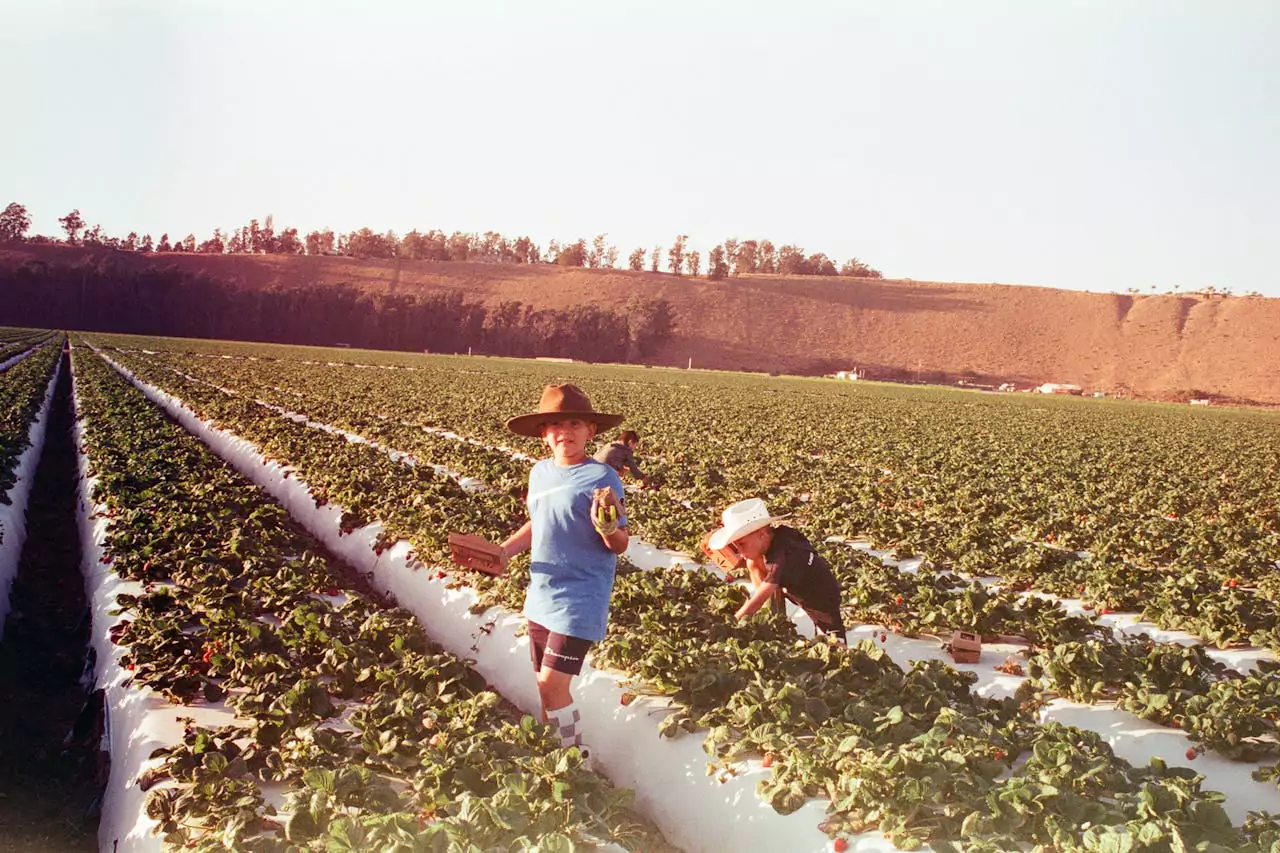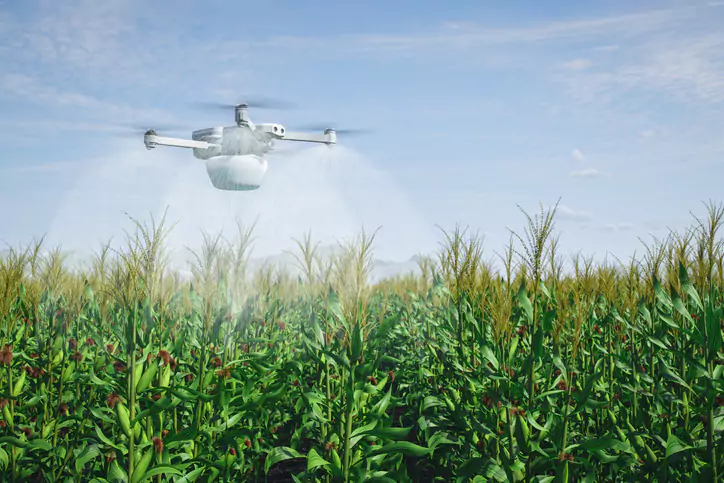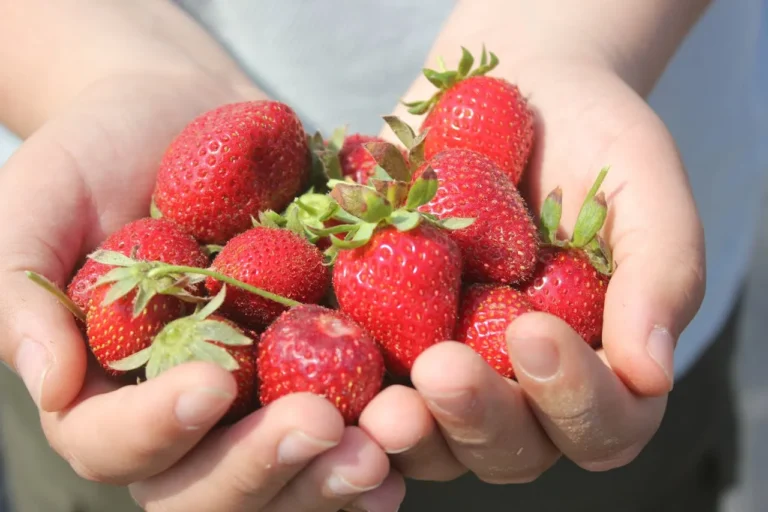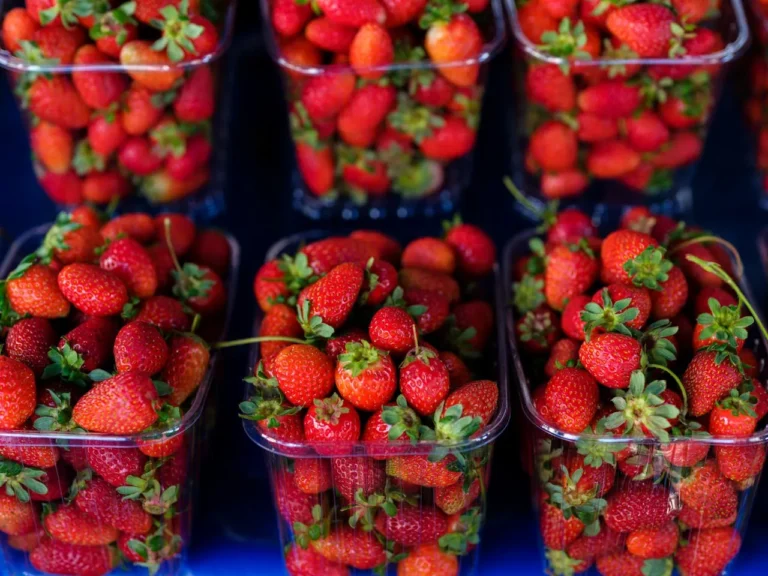
Syngenta Group Five Groundbreaking AI Trends Set to Transform Agriculture in 2025,At the World Economic Forum (WEF), Jeff Rowe, CEO of Syngenta Group, outlined five key trends in artificial intelligence (AI) that are expected to revolutionize agriculture by 2025. During a compelling panel discussion at Bloomberg House on the topic “From Soil to Silicon:Syngenta Group How Advanced Technologies are Cultivating the Future of Sustainable Agriculture,” Rowe shared insights on how AI will drive significant transformations in farming practices, sustainability, and productivity. With a focus on harnessing AI technologies from the lab to the field, 2025 is projected to be the pivotal year when AI’s true potential will be realized in agriculture.
AI in Research and Development (R&D)
One of the primary areas where AI is already making a significant impact is in research and development. Syngenta Group is leveraging machine learning models to advance its R&D efforts, particularly in identifying novel active ingredients for both synthetic and biological products.Syngenta Group By utilizing AI, researchers can accelerate the discovery of new solutions that can enhance crop yields, improve resistance to pests and diseases, and increase overall agricultural efficiency. AI-powered algorithms are used to analyze vast amounts of data from experiments and trials, helping scientists to quickly identify promising candidates for further development. This not only speeds up the process of creating innovative agricultural products but also makes it possible to uncover solutions that may have been missed using traditional methods.
AI in the Field: Revolutionizing Soil Monitoring and Prediction
Another area where AI is poised to transform agriculture is in the field itself. AI-driven systems are enabling more accurate monitoring and prediction of soil health, which is essential for sustainable farming practices.Syngenta Group Through the integration of advanced technologies, such as sensors, drones, and satellite imagery, farmers can now generate high-resolution soil nutrient, texture, and carbon maps. These AI-powered tools provide farmers with real-time data on soil conditions, allowing them to make better-informed decisions about crop management. For instance, AI can predict nutrient deficiencies, enabling farmers to apply fertilizers more efficiently and precisely. This reduces waste and enhances soil health, contributing to more sustainable agricultural practices.
By using AI to monitor soil health, farmers can also manage the carbon content of their soil, helping to mitigate climate change.Syngenta Group These innovations allow for precision agriculture practices that not only increase crop yields but also reduce the environmental impact of farming. For example, precision irrigation systems powered by AI can optimize water usage, ensuring that crops receive the right amount of water at the right time, further reducing waste and improving water conservation.
AI in Farmers’ Hands: Empowering Agronomic Advisors
A significant trend that is emerging is the role of AI in empowering farmers through digital tools.Syngenta Group GenAI-enabled agronomic advisors are helping farmers make more informed decisions about crop management. These AI-driven tools analyze vast amounts of data—such as weather patterns, soil conditions, and historical crop performance—to provide tailored recommendations for farmers. By acting as virtual agronomists, these tools help farmers determine the best crop management practices, such as optimal planting times, irrigation schedules, and pest control measures.
These AI-powered platforms are particularly beneficial for smallholder farmers who may not have access to the same resources and expertise as larger agricultural operations. Syngenta Group By putting advanced agronomic advice directly into the hands of farmers, AI tools can level the playing field and enhance productivity in developing regions. Moreover, these tools enable farmers to adapt quickly to changing conditions, such as unexpected weather events or pest outbreaks, by providing real-time insights and actionable recommendations.
AI in Pest Management: Precision Agriculture at Work
AI is also transforming pest management through precision agriculture and data-driven decision-making. In the past, pest control often involved blanket applications of pesticides across entire fields, Syngenta Group which could result in overuse of chemicals, increased costs, and potential harm to the environment. Today, AI is enabling farmers to target pesticide applications only to areas that are actually infested with pests, reducing the need for widespread chemical treatments.
AI-powered systems use sensors, drones, and machine learning algorithms to detect the presence of pests and analyze their patterns. Syngenta Group By accurately identifying the location and severity of infestations, these systems allow for more precise pesticide applications, minimizing the environmental impact and improving the efficiency of pest control efforts. Additionally, Syngenta Group AI can be used to predict future pest outbreaks, allowing farmers to take proactive measures before infestations become widespread. This reduces the need for reactive, broad-spectrum pesticide use and helps maintain the health of ecosystems.
AI in Supply Chain Management: Enhancing Efficiency and Reducing Waste
The application of AI in supply chain management is another key trend that will shape the future of agriculture. AI-driven systems are helping farmers optimize their supply chains by providing more accurate demand forecasting, market predictions, and inventory management. Syngenta Group By analyzing historical data, AI can predict future demand for agricultural products, enabling farmers to adjust their production plans accordingly.
This level of precision can reduce overproduction and waste, helping to improve the efficiency of the entire agricultural supply chain. For example, AI can predict fluctuations in market prices or consumer preferences, allowing farmers to adjust their production strategies to align with market needs. Additionally, AI can optimize logistics, such as transportation and distribution, by analyzing factors like weather patterns and traffic conditions. This helps ensure that agricultural products reach consumers in a timely manner, reducing spoilage and minimizing food waste.

Economic Potential and Global Impact
The economic potential of AI in agriculture is substantial. The global AgriTech market, valued at $24.19 billion in 2023, is projected to grow to $54.17 billion by 2029, according to recent market analysis. The market for AI in agriculture is also expected to experience significant growth, with a projected increase from $1.7 billion in 2023 to $4.7 billion by 2028. These figures highlight the growing importance of AI technologies in the agricultural sector and the potential for these innovations to drive economic growth and productivity improvements across the industry.
A report by the World Economic Forum (WEF) estimates that digital agriculture could boost the agricultural GDP of low- and middle-income countries by $450 billion annually. This underscores the transformative potential of AI and digital technologies in improving agricultural productivity, reducing poverty, and addressing global food security challenges.
Collaboration for Success
During the WEF panel discussion, Jeff Rowe and Suzanne DiBianca, Executive Vice President & Chief Impact Officer at Salesforce, emphasized the need for collaboration among policymakers, businesses, and other stakeholders to reduce the barriers for farmers adopting technology. Both panelists agreed that overcoming financial and technical obstacles is critical for ensuring that AI-driven solutions reach all farmers, particularly those in developing countries.
Governments, businesses, and tech companies must work together to create an ecosystem that supports the widespread adoption of AI and digital technologies in agriculture. This includes providing access to affordable technology, offering training and support for farmers, and developing policies that encourage innovation while ensuring sustainability. By addressing these challenges, AI can become a powerful tool for improving food security, promoting sustainable farming practices, and addressing the challenges posed by climate change.
A Sustainable and Resilient Future
The synergy between AI, digital technologies, and sustainable farming practices is paving the way for a more resilient and productive agricultural sector. By integrating regenerative farming practices with advanced AI solutions, farmers are better equipped to tackle the challenges posed by climate change, resource scarcity, and population growth. These innovations are not only improving farm productivity but are also helping to create a more sustainable food system that benefits both people and the planet.
In conclusion, the five key AI trends identified by Syngenta Group are poised to revolutionize agriculture by 2025. From improving R&D efforts and optimizing soil health to empowering farmers with digital tools and enhancing supply chain efficiency, AI is transforming the agricultural landscape. With the right collaboration and investment, AI technologies have the potential to create a more sustainable, productive, and resilient agricultural system for future generations.
Read more: Syngenta Group Five Groundbreaking AI Trends Set to Transform Agriculture in 2025



